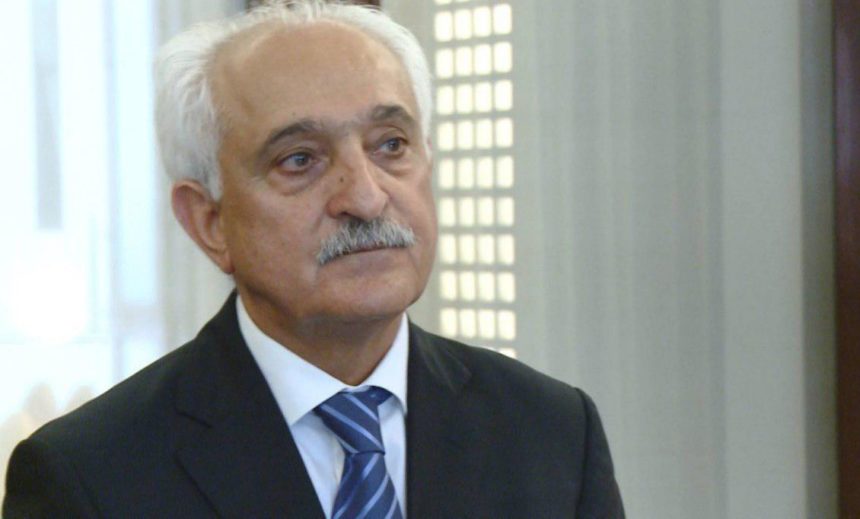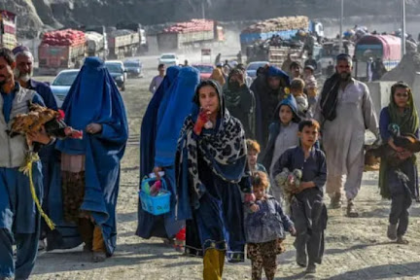Rangin Dadfar Spanta, the advisor to Hamid Karzai’s government’s National Security Council, at the eleventh security summit in Herat held in Tajikistan, attributes the Taliban’s dominance in Afghanistan to the inefficiency of the Afghanistan Republic government and the emerging global strategic challenges. Spanta, who served for years as the senior security advisor in Karzai’s government structure, monitoring Afghanistan’s political situation and the targeted transfer of terrorism from southern provinces to the north, As the highest-ranking security official in the organized campaigns against non-Pashtun leaders and the collection of military equipment by the United Front of Afghanistan, Professor Burhanuddin Rabbani played a crucial role during the time of the government’s security. For the first time since the Taliban’s takeover of the country, he spoke out, after more than 9 years of being a key player in Hamid Karzai’s security apparatus, in the efforts to Talibanize Afghanistan’s political landscape, weaken and eliminate opposition figures, and shifting the war to the north.
Dadfar Spanta, following his tenure in Zahir Shah’s court, dedicated years to the role of senior security advisor, committing himself to Hamid Karzai’s controversial policies. In pursuit of tribal goals, he orchestrated the systematic elimination of non-Pashtun leaders, sidelined the United Front in the political arena, and played a part in directing terrorism to the north, gaining commendations and influential positions. Demonstrating his unwavering loyalty to Zahir Shah’s contentious policies, he, once again, in the Herat security summit, addressed the entire populace of the country as “Afghan,” giving precedence to Pashto over Persian as the national language. This stance invoked vehement reactions from cultural luminaries, politicians, and citizens alike.
Cultural figures and politicians in the country, in response to Spanta addressing all non-Pashtun Afghans “Afghanistani,” have remarked, “Similar to himself, he considers all people indebted to fascist regimes and seeks to once again impose this imposed identity on the Afghanistani people.” Political analysts and cultural figures in the country criticize Mr. Spanta’s statements at the eleventh security summit in Herat, asserting that the prospect of the Taliban’s return to power is a byproduct of the policies of Hamid Karzai’s government and Mr. Spanta’s mission as an advisor to the National Security Council.
Mr. Spanta, in a segment of his remarks during this summit, pointed to the tribal monopoly of power and the Taliban’s refusal to accept an inclusive government. He stated, “Having been involved for nine years in the country’s policy-making, including direct talks with the Taliban twice in Moscow and once in Doha, I know that there hasn’t been a serious proposal regarding the Taliban’s readiness for dialogue with opponents.” Spanta, the son of one of the influential clerics in Herat named Shah Alam Taheri, who, according to the norms of that time, was granted him to former king “Zahir Shah” by his father, and Rangin became later court Ghulam Bacha (Boy Slave) and witnessed several of these Boy Slaves embracing a Maoist interpretation of Marxist ideology. Spanta, having been inclined towards the term “Afghan” rather than “Afghanistani” due to these influences, still harbors thoughts of servitude. After migrating to Europe, Rangin Spanta severed all ties with his homeland to the extent of joining the Green Party in Germany and becoming its candidate for the mayor of Aachen. With the recent developments in Afghanistan, Mr. Spanta, like many other politicians, contemplates life in the West and politics in Afghanistan, leading to his silence in realizing fascist, anti-Persian, and assassinations of non-Pashtun leaders for the preservation of his political power.
The eleventh security summit, titled “Rethinking Afghanistan: Different Approaches,” held for two days in Dushanbe Tajikistan by the Center for Strategic Studies in Afghanistan, delved into political and security issues related to Afghanistan. Eminent analysts and politicians discussed and presented various proposals. In this summit, individuals from different countries worldwide, including political and military opponents of the Taliban such as Ahmad Massoud, the leader of the National Resistance Front of Afghanistan, and Amir Mohammad Ismail Khan, a jihadist leader, along with some former officials from the Afghanistan government, were present. Amir Mohammad Ismail Khan reiterated in this summit, “The Taliban not only have not changed, but they have become more rigid than in the past.” He emphasized, “Handing over power to the Taliban was a global conspiracy.” He continued to state that if the Taliban do not engage in negotiations, they will save Afghanistan from their clutches.
Mr. Spanta added in this summit, “We firmly believe that the era of foreign soldiers in Afghanistan has come to an end, and no Afghan patriot will have such a desire for foreign soldiers to come to their country. Only the Taliban have placed thousands of foreign terrorist forces in our country, which will be expelled from the land of Afghanistan.” Political experts are criticizing Mr. Spanta’s multi-faceted remarks at the 11th Herat Security Conference, stating that Spanta, who is known as a witness to Hamid Karzai’s tribal policies, has directly contributed to the current challenges facing the country. Non-Pashtun ethnic groups in the country hold him complicit in the Talibanization of northern Afghanistan and the shift of the war to these provinces, making him responsible for the crimes committed by tribal leaders.






